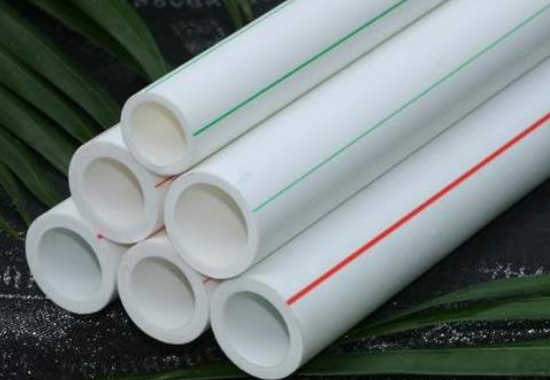Oct . 13, 2024 22:35 Back to list
High-Density Polyethylene Pipe Applications in Agricultural Irrigation and Farming Solutions
HDPE Pipe for Agriculture An Essential Tool for Modern Farming
In the realm of modern agriculture, the need for efficient water management and distribution is more critical than ever. With the increasing global population and the corresponding demand for food, farmers are constantly seeking ways to optimize their cultivation practices. One significant advancement that has reshaped agricultural irrigation systems is the use of High-Density Polyethylene (HDPE) pipes. HDPE pipes have emerged as a crucial component for sustainable farming due to their unique properties, versatility, and environmental benefits.
What is HDPE?
High-Density Polyethylene (HDPE) is a thermoplastic polymer known for its high strength-to-density ratio. It is resistant to impact, chemicals, and UV rays, making it a preferred choice for various applications, especially in agriculture. HDPE pipes are manufactured through the polymerization of ethylene, which results in a robust material that can withstand harsh environmental conditions.
Benefits of Using HDPE Pipes in Agriculture
1. Durability and Longevity One of the most significant advantages of HDPE pipes is their resistance to corrosion and degradation. Unlike traditional materials like metal or concrete, HDPE does not rust or corrode, allowing for a longer lifespan, often lasting over 50 years with proper installation.
2. Lightweight and Easy to Handle HDPE pipes are lightweight compared to other pipe materials, making transportation and installation much more manageable. This feature is especially important in remote agricultural areas where accessibility can be a challenge.
3. Cost-Effectiveness Though the initial investment in HDPE pipes may be higher than some traditional materials, the long-term savings on maintenance, replacement, and water usage make them a cost-effective solution. Their resistance to damage reduces the need for frequent repairs and upgrades.
4. Flexibility HDPE pipes can be easily bent and shaped to fit various terrain configurations. This flexibility allows farmers to install them in diverse agricultural landscapes without compromising water distribution efficiency.
5. Reduced Water Loss and Efficient Distribution HDPE pipe systems are designed for low-pressure applications, reducing water loss during distribution. This efficiency is critical in areas where water resources are scarce, making it an excellent solution for irrigation.
Environmental Benefits
hdpe pipe for agriculture products

As the world grapples with climate change and water scarcity, the agricultural sector faces increasing pressure to adopt sustainable practices
. HDPE pipes contribute significantly to these efforts- Water Conservation By minimizing leaks and evaporation, HDPE irrigation systems help conserve water, which is essential for sustainable farming practices. This is especially crucial in arid regions, where every drop counts.
- Recyclability HDPE is 100% recyclable, reducing the environmental impact associated with disposal. Farmers can recycle old pipes into new products, leading to a circular economy within the agricultural sector.
- Lower Carbon Footprint The lightweight nature of HDPE reduces the energy consumption associated with transportation and installation. Furthermore, its longevity means fewer resources are needed for production, contributing to lower overall carbon emissions.
Applications in Agriculture
HDPE pipes are used in various agricultural applications, including
- Irrigation Systems From drip irrigation to sprinkler systems, HDPE pipes facilitate efficient water delivery directly to plant roots, optimizing water use and promoting healthy crop growth.
- Drainage Systems Proper drainage is vital for preventing waterlogging and maintaining soil health. HDPE piping is used in subsurface drainage systems to enhance soil aeration and prevent root diseases.
- Fertigation The combination of fertilization and irrigation (fertigation) benefits immensely from HDPE pipes, allowing for the direct application of nutrients to crops through irrigation systems.
Conclusion
HDPE pipes represent a transformative technology in the field of agriculture, offering numerous benefits that align with the needs of modern farmers. Their durability, cost-effectiveness, and environmental advantages make them an essential tool for sustainable and efficient farming practices. As global agricultural demands continue to rise, embracing technologies like HDPE piping will be crucial in optimizing water management, improving crop yields, and ensuring food security for future generations. By investing in HDPE pipes, farmers can not only enhance their productivity but also contribute positively to the environment, ensuring a sustainable agricultural landscape for years to come.
-
High-Quality PVC Borehole Pipes Durable & Versatile Pipe Solutions
NewsJul.08,2025
-
High-Quality PVC Perforated Pipes for Efficient Drainage Leading Manufacturers & Factories
NewsJul.08,2025
-
High-Quality PVC Borehole Pipes Durable Pipe Solutions by Leading Manufacturer
NewsJul.08,2025
-
High-Quality PVC Borehole Pipes Reliable PVC Pipe Manufacturer Solutions
NewsJul.07,2025
-
High-Quality UPVC Drain Pipes Durable HDPE & Drain Pipe Solutions
NewsJul.07,2025
-
High-Quality Conduit Pipes & HDPE Conduit Fittings Manufacturer Reliable Factory Supply
NewsJul.06,2025

